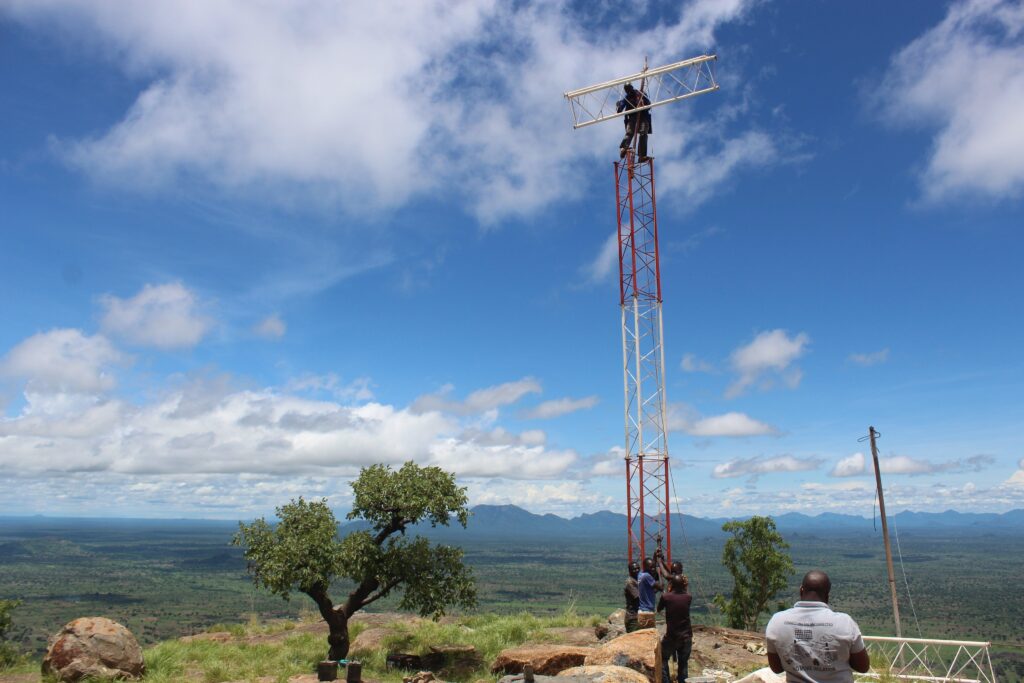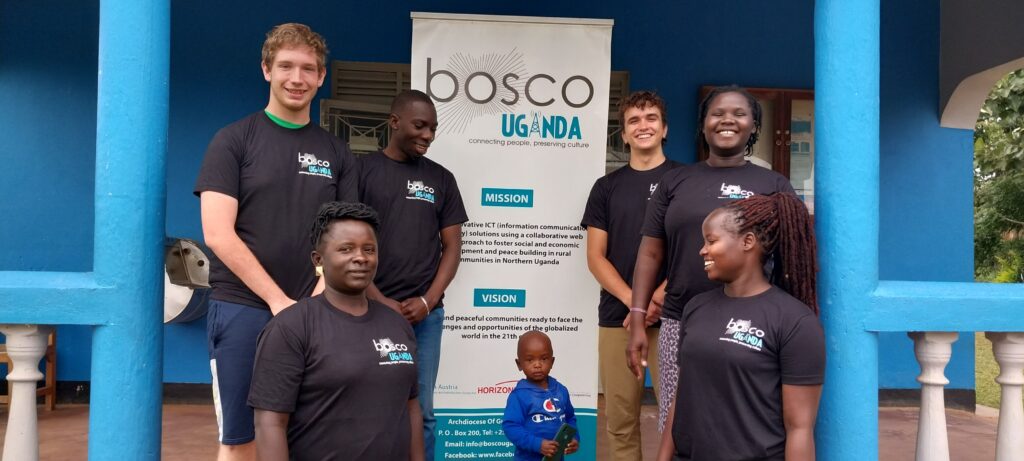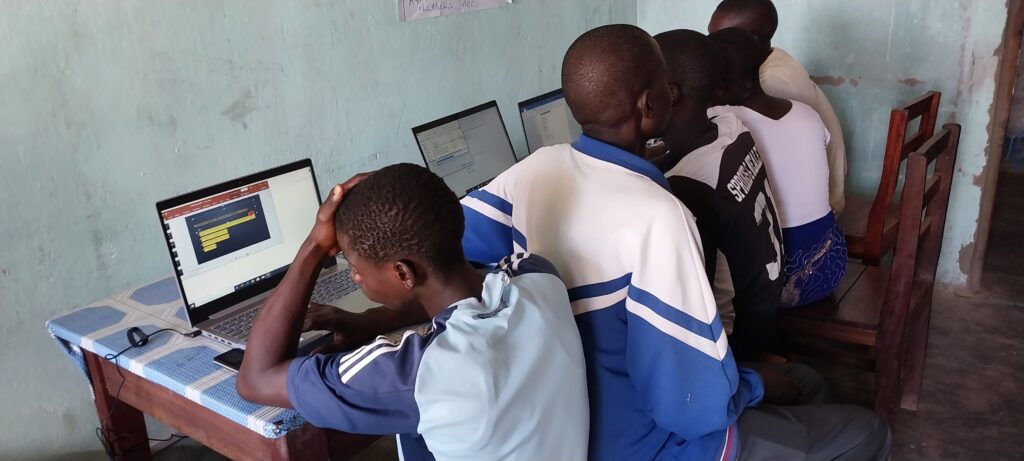BOSCO Uganda’s Community Network Journey: extending connectivity and facilitating empowerment
BOSCO have been building their community network for more than a year. This blog looks at the reason for and impact of building it.


Over the course of the last 2 years, BOSCO Uganda have been busy building their community network. With the expansion of this network, they have been able to connect several ICT centers, as well as local residents to their network. Additionally, some of the ICT centers have been refurbished with new computers and other equipment. This has encouraged the local youth to use these spaces as a learning environment.
The BOSCO team has also facilitated training programs for locals that aspired to oversee the daily operations of the ICT centers. The team also trained people in computer literacy, enabling them to help other people using Microsoft Office tools, general internet use, social media, and how to gather information online, just to name a few examples.
With the third phase of this project commencing, we wanted to dive deeper into the benefits of building such an extensive community network. We also want to understand the opportunities this provides for the users of not only the ICT centers, but also the community network in general.

From internet isolation to internet inclusion
First of all, it is important to understand how the community network is being used by the local people and communities. Daniel, executive director of BOSCO Uganda explains that the local people come to the established ICT Centers to access the ICT services such as computer training, printing, photocopying, scanning, typing, phone charging and greatest of it all is the internet which they use for researching information such as market information, job opportunities, educational information, communications and relationship and network building.
The community network is currently being established in an area that lies remotely, and is therefore beyond the national network grid, as this is likely too costly for the state to build. Therefore, by expanding their own community network, BOSCO Uganda is able to connect schools, local government offices, and grass root organizations that are all located in this area. In the long-term, this not only means that people living here get better access to important information, but the chances are higher that younger parts of the population choose to stay, and pursue their future in the rural areas rather than move away to bigger cities. Access to connectivity thus creates better opportunities for the local population in the areas they already live in.
Opportunities for the communities
Getting an even deeper understanding of the opportunities the community network brings is essential when considering which solutions will provide the most impact . Daniel explains that the community network and the affordable internet increases the access to information and connection to the world. The ICT centers have supported the students in carrying out research.
The new Ugandan education curriculum at secondary school encourages the students to do more personal research. This often requires access to online resources, which again can only be accessed through computers or smartphones. Most of the rural schools don’t have this. ICT centers therefore become a vital part in the students’ learning opportunity. Teachers use the centers facilities to do extensive research about their subjects, do online registration and set and print exams. Otherwise they would have to travel up to 30 kilometers to access a computer center to do those things. With training in Excel, teachers can grade and produce students’ report cards using computers.
Another example of which opportunities the community network brings, is that farmers can now price and market their own products through the internet. This way the middlemen are cut out. Not only does this ensure that the farmers can earn their fair share, enabling them to purchase the necessary equipment to continue their business, but it is also likely that the products can be offered at a more favorable price to the consumer.

Future-ready: strengthening capacity for lasting impact
An important part to any community network that is being set up is the sustainability aspect. How will it be maintained, and how will it be managed? Similar questions arise in relation to the ICT centers. BOSCO is aware of the importance that what they are setting up is ensured to be maintained after its installation. To cover all necessary areas extensively, they have divided their capacity building into three different parts.
1. Leadership and management training
The first one is the leadership and management training for the ICT Centre management committees. In this training, the focus is to understand what leadership is and what makes a good leader. Additionally, BOSCO has included ICT Center management composition (this emphasizes the aspect of inclusivity at the center), conflict management, risk management, documentation and record keeping, sustainability requirement for the ICT Center and monitoring and evaluation. This training uses learners or a participatory approach.
2. Computer literacy
The second training is on computer literacy which includes an introduction to computers, and the Microsoft Office package. The training also includes an introduction to the internet, online information gathering using search engines, productive use of social media and basic digital security concepts like password management, phishing and social engineering attacks. Trainees learn how to manage and securely browse and the intranet where they get access to educational content through Kolibri. This training is mainly done in the local language to also cater for people who are uneducated. The people trained on this are called Trainers of Trainees (ToTs). They replicate the knowledge and skills to others by training them.
3. Maintenance and repair skills
The third phase of training is on basic maintenance and repair skills. This is focused on building the capacity of the community to support the maintenance and troubleshooting of the center. In case of any incidence of breakdown in computers, networks or solar energy systems, BOSCO expect to work remotely with the community members who are trained on this to establish the real cause and solve the issue before our team could go on the ground in case it’s an advanced issue. The training focuses on basic computer hardware and software maintenance, network troubleshooting and small Photovoltaic solar system installation and maintenance.

Sharing knowledge with the wider community
The trained people use their knowledge to train other people within their communities. Others start up their own ICT businesses. They do computer and phone repairs, printing services, phone charging services, and small solar repair services. Others get employed in jobs which require computer knowledge and skills. Furthermore, BOSCO has witnessed young people who got inspired by the training. Therefore, they joined the University for higher education in the field of ICT. They are considered champions in the field of ICT in their locality.
BOSCO’s work in Uganda not only brings connectivity to the area, they also ensure that the connectivity can be sustainable. Through training the local people to operate and install the network, they are able to create a self-sustaining maintenance of the network. This way, people also gain digital knowledge, which they can utilize in other aspects as well.